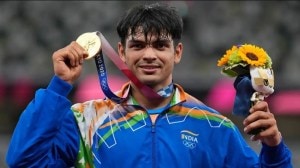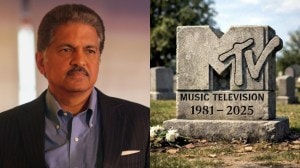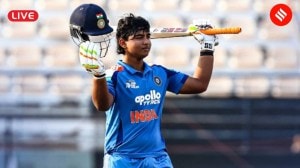Expectations high for Indo-US ties
President George W. Bush heads to India with grand visions of partnership with the world's biggest democracy, but some experts say such high expectations could lead to disappointment or even a backlash.

President George W. Bush heads to India with grand visions of partnership with the world8217;s biggest democracy, but some experts say such high expectations could lead to disappointment or even a backlash.
In a preview of next week8217;s visit, Bush reaffirmed his vision of a 8220;strategic partnership8221; that includes abetting India8217;s rise as a global power through cooperation on economic, energy, political, cultural and health issues.
But Dan Blumenthal, a former Pentagon official now at the conservative American Enterprise Institute, says the U.S.-India relationship simply cannot bear the diplomatic weight Washington is placing on it.
8220;I am concerned it8217;s being oversold,8221; Blumenthal told Reuters. 8220;There8217;s this danger of a backlash if India simply can8217;t or won8217;t deliver on things we expect of them.8221;
Once a pro-Soviet adversary, India 8220;has its own historical legacy that it needs to work out in terms of what kind of power it wants to be. That will take some time,8221; he said.
A U.S.-India partnership is a 8220;good thing, as long as we don8217;t have excessive expectations,8221; said former State Department official Alan Romberg, an Asia specialist with the Henry L. Stimson Center.
Ties between the two countries began to improve under President Bill Clinton, but Bush accelerated the trend, propelled by U.S.-India business deals and a determination by the White House after Sept. 11 to build a new world order based on nations that shared America8217;s values.
For some critics, Iran8217;s contentious nuclear program underscores the limits of any U.S.-India partnership.
India recently backed the United States to report concerns about Iran8217;s nuclear activities to the U.N. Security Council. Yet, India still maintains close energy ties to Tehran.
The United States and India also remain at odds over a July 2005 nuclear deal promising India access to U.S. and foreign civilian nuclear technology denied for 30 years. Negotiators hope to resolve differences before Bush8217;s visit.
ANOTHER CHINA?
The United States also sought a 8220;strategic partner8221; when it opened ties with China 30 years ago, but today the Pentagon centers defense planning on the possibility Beijing may become a military adversary and sees India as a hedge against China.
While there will be ups and downs in the relationship, many observers discount the notion of India becoming a U.S. rival in the way the Bush administration views China.
8220;The likelihood of that is remote because this is one relationship where 8230; you don8217;t have difficulty in reconciling principle and practice or the vital national interests with values,8221; said Ronen Sen, India8217;s ambassador to Washington.
Others say India does not share China8217;s aspirations to supplant the United States as the pre-eminent Asian power, reducing possible tensions over human rights and weapons proliferation. China8217;s record in both instances has been a persistent U.S. concern.
Romberg, of the Stimson Center, doubts India would be willing to play counterweight to China or side with the United States in the event of conflict with Beijing over Taiwan.
In addition to being courted by Washington, India has long-standing ties with Russia and improving ties with China, raising the prospect it could play one or another power off against the United States.
However, Stephen Cohen of the Brookings Institution said none of those countries wants to sever ties with Washington.
8220;As long as that8217;s the case, they can talk about working together against us, or sharing their views about us, but in fact they come to work with us in the last analysis,8221; Cohen, author of books on India and Pakistan, told Reuters.
- 01
- 02
- 03
- 04
- 05































